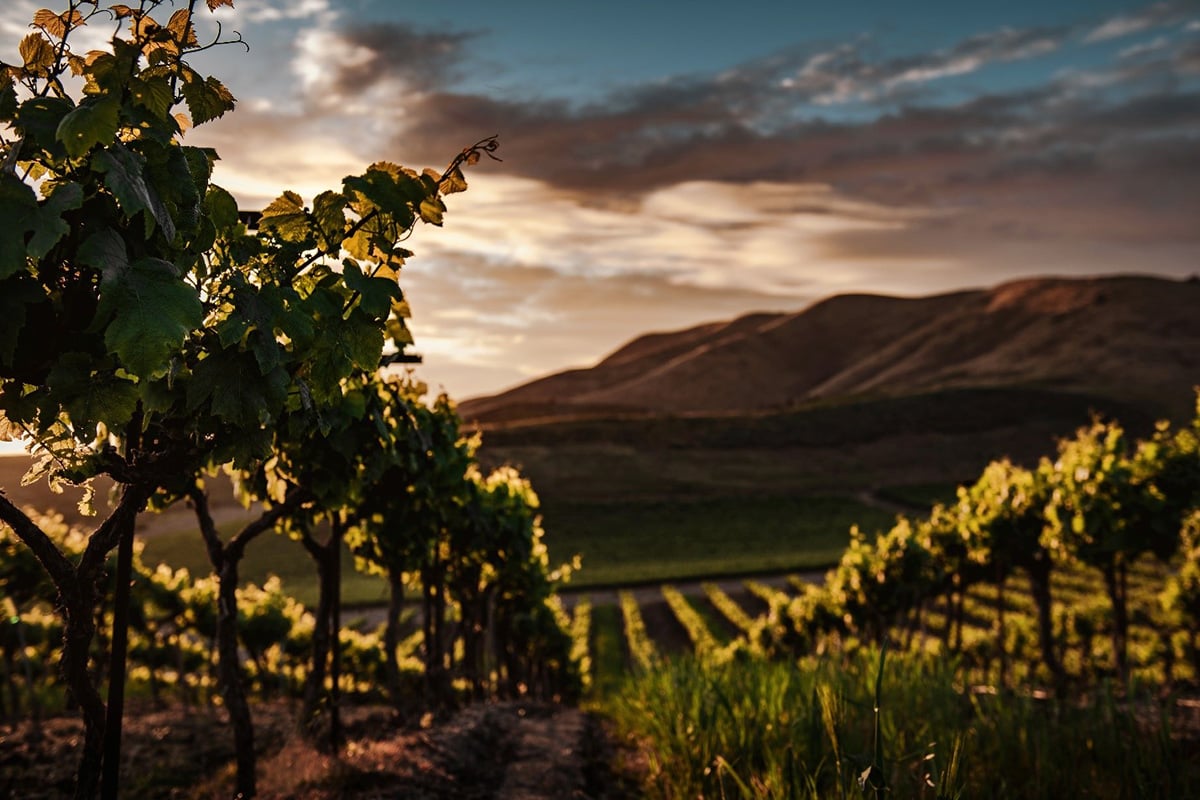

When it comes to the world of hospitality, particularly in the culinary world, we often hear people use words like “sustainability” and “organic” to describe their food and beverages. The difference between sustainability and organic is not always known by most people though. As these terms are used more and more in our every day lives, it’s important to understand the difference between the two, especially when it comes to wine.
Sustainable wine production focuses on the long-term health and vitality of the vineyard and its surrounding ecosystem, while organic wine production is primarily concerned with the use of synthetic chemicals and pesticides in the vineyard.
Wine makers, especially those that grow their own grapes, are very conscious of these ideas of organic and sustainable, but the general public doesn’t always know what these words mean.
Let’s take a look at what sustainable wine is vs what organic wine is. While these words may seem interchangeable to some people, there is a big difference in their meaning.
What is Sustainable Wine?
Sustainability and California grown wine go together like… wine and cheese. The idea behind sustainable wine practices is that we can grow and produce incredible grapes and wine with the goal of protecting the environment while also keeping the soil and ecosystems we use for winemaking, in good condition.
The goal is to produce the best tasting wines while remaining aware of the environmental impact these processes have on our planet. There are a few different ways that the wine industry in California aims to produce sustainable wines.
Sustainable wine production looks at the entire ecosystem of the vineyard, including the soil, water, air, and biodiversity. This approach focuses on the importance of preserving the natural resources of the vineyard for future generations, while also reducing the environmental impact of wine production.
Sustainable wine producers may use a variety of techniques, such as crop rotation, composting, and cover cropping, to improve soil health and reduce the need for synthetic fertilizers. They may also use pest management solutions that rely on natural predators and other non-chemical controls to keep pests in check.
What is Organic Wine?
While sustainable wine looks to minimize the impact of wine production on the ecosystem, organic wine is focused on minimizing the use of synthetic chemicals and pesticides to help the grapes grow.
The same practices that go into growing the organic grapes you find at the grocery store are used in growing grapes intended for wine making.
In order for a wine to be certified organic it must not use any synthetic pesticides, herbicides, or fertilizers in the soil or on the plants themselves. Instead, they must rely on natural methods for pest control such as natural predators, companion planting, or biodynamic techniques.
In addition to the strict rules around chemicals, organic wines must also adhere to rules during the wine making process itself. Things like the use of oak barrels for aging and the use of added sulfites.
The main thing that the certifiers look for when it comes to organic products is the use of chemicals in pest prevention.
Can Wine Be Both Sustainable and Organic?
Yes, wine can be certified as both sustainable and organic. It’s important to note that many vineyards that are certified as sustainable may also be certified as organic, but not all vineyards that are certified as organic are necessarily sustainable.
Getting certified in either category requires the approval of a 3rd party group. In the case of sustainability, the vineyard will be audited and assessed based on how the vineyard manages the ecosystem. They will look at water use, energy management, environmental practices, as well as other things.
When becoming certified organic, a 3rd party certification group will look at the vineyards use of synthetic chemicals and pesticides in their growing process.
Does Organic or Sustainable Wine Taste Different?
Winemaking is an art. It takes finesse and skill to be able to grow the grapes needed to make the wine as well as process those grapes correctly in order to produce the best tasting wine possible.
Part of this process starts with the soil and the environment that the grapes are grown in. The soil and the environment can play a big role in how the end product will end up tasting.
Now, does that mean that organic wine or sustainable wine taste better than wines that aren’t certified? Not necessarily.
Everyone has their own personal tastes and while one person may love an organic wine, another person may not feel as strongly about it. Wine is all about perception and personal taste, just like anything we eat or drink.
There’s nothing wrong with saying that you don’t think the organic wine makes something taste better or that you prefer sustainable wine over non-sustainable wine, it’s all a personal preference. However, knowing that you’re helping to limit synthetic pesticides going into the ground or into your body, as well as supporting vineyards that are striving to help the environment, often makes people feel better about themselves. Choose the wines you enjoy, but if you’re looking to do your small part to help the planet, take a look at that label next time you buy a bottle of wine. Sustainable wine vs. organic wine shouldn’t be pitted against each other, they are both doing their best to help our planet.